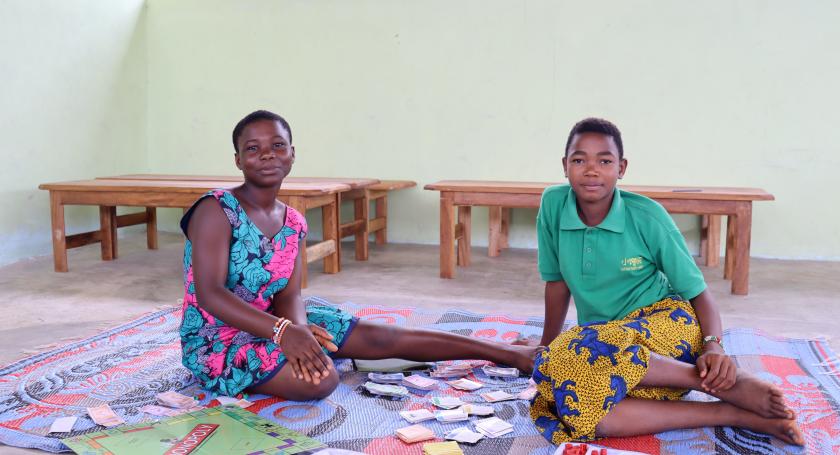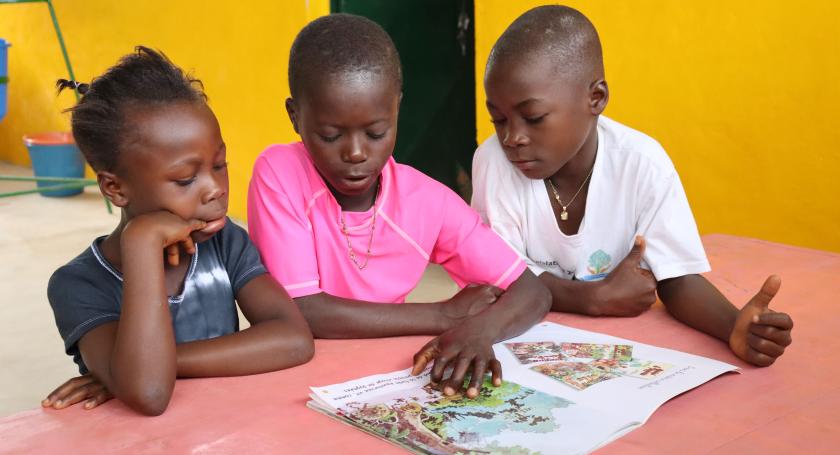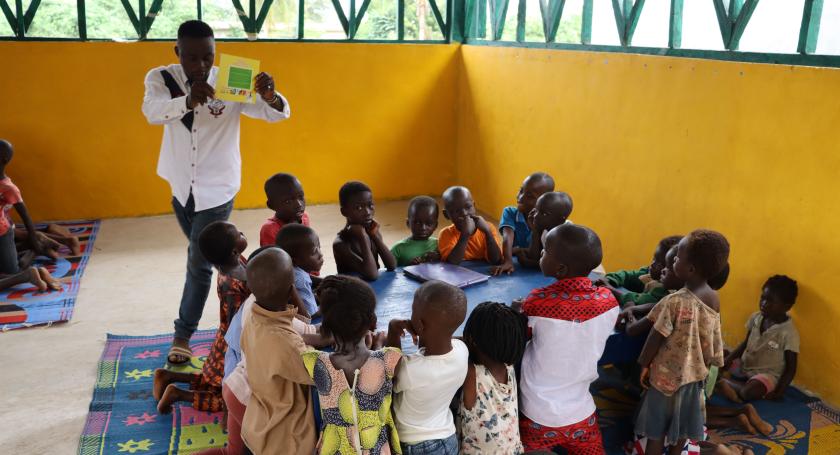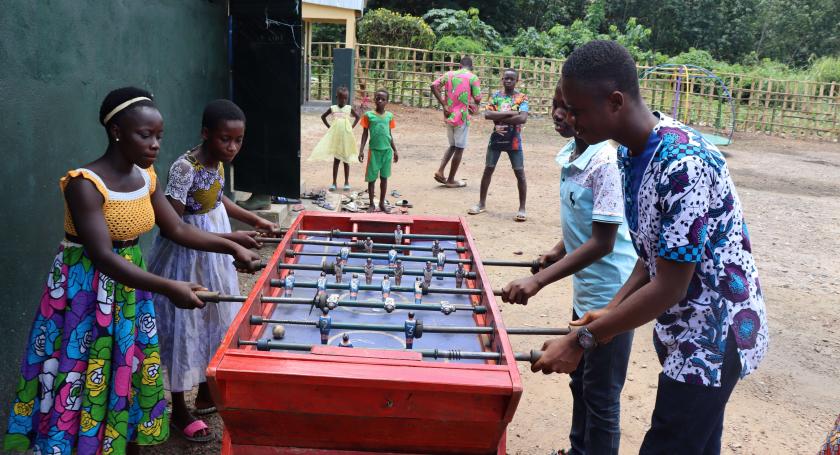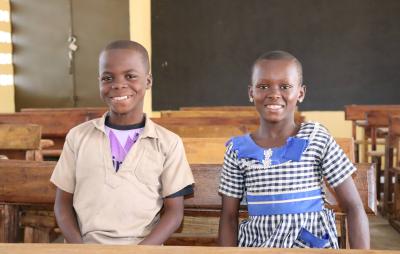Child-Friendly Spaces have helped promote children’s rights to play and learn in three cocoa-growing communities in Cote d’Ivoire. By offering a safe place to play, learn and meet other children, Child-Friendly Spaces contribute to the social and emotional development of children and offer an alternative to child labour by providing cocoa farmers access to childcare.
With support from the Jacobs Foundation, we’ve piloted the use of Child-Friendly Spaces in the communities of Teady, Belle-Ville and Biakou in Côte d’Ivoire, to assess their effectiveness at protecting children from harm, including hazardous child labour. Child-Friendly Spaces are supervised environments where children can come together to play, relax, express themselves, participate in choosing and developing activities, feel supported and develop skills. They are run by local facilitators, trained in child-centred pedagogical approaches. They provide children in the community with opportunities to participate in group activities outside of school hours and during the holidays and support their development.
Who attended the Child-Friendly Spaces?
Over the first year of operation (February 2022-2023), 568 children attended the three spaces at least once. Overall, more boys attended the spaces than girls. 9% of children attending the spaces were out of school.
Children identified in child labour were more likely to attend the spaces than children not identified in child labour. In addition, single parents and cocoa farmers were more likely to send their children to the Child-Friendly Spaces. This implies that the Child-Friendly Spaces successfully reached groups in a situation of vulnerability. One reason for this success could be the awareness-raising sessions that targeted families in vulnerable situations.
Strengthened social, emotional and cognitive skills
The Child-Friendly Spaces offered learning and development opportunities for the children, with positive changes observed by facilitators and caregivers alike. Structured activities and interaction with others helped children develop social and emotional skills, as well as improve reading and cognitive skills. These positive effects were also noted by the teachers at school and by the children themselves.
Improved parenting practices
Results suggest that the project improved parenting practices, a key factor in child protection. The proportion of caregivers reporting that they avoided violent discipline and prioritised their children’s schooling and play time over work increased from 44% to 63%.
An alternative to child labour
Parents from the three communities reported that the Child-Friendly Spaces allowed them to leave their children in a safe place while they were working in the fields, instead of bringing them along. Our data confirms this, suggesting that children attending the Child-Friendly Spaces were more likely to stop doing hazardous work compared to those who didn’t attend (based on a small sample size).
Next steps and opportunities for improvement
Although the pilot project is now over, the Child-Friendly Spaces continue to operate, and local authorities have expressed interest in continuing to manage them in the future.
To ensure their continued success, parents, children and facilitators identified the following key areas to help attract and retain more children:
- Provide meals and drinking water for children at the spaces
- Increase the variety of games and materials
- Enlarge the spaces and hire more facilitators to accommodate more children
Since this is a new approach both for cocoa-growing communities and ICI, it is also crucial to raise awareness about the advantages of Child-Friendly Spaces to motivate those hesitant to try this new approach.
Overall, this pilot has shown that Child-Friendly Spaces are an effective approach to improving the protective environment for children in cocoa-growing communities. They offer a safe space for children to play, learn and interact, and a valuable childcare solution which prevents many parents from engaging children in farm work. These results suggest that Child-Friendly Spaces could be a valuable component of efforts to prevent and address child labour.

